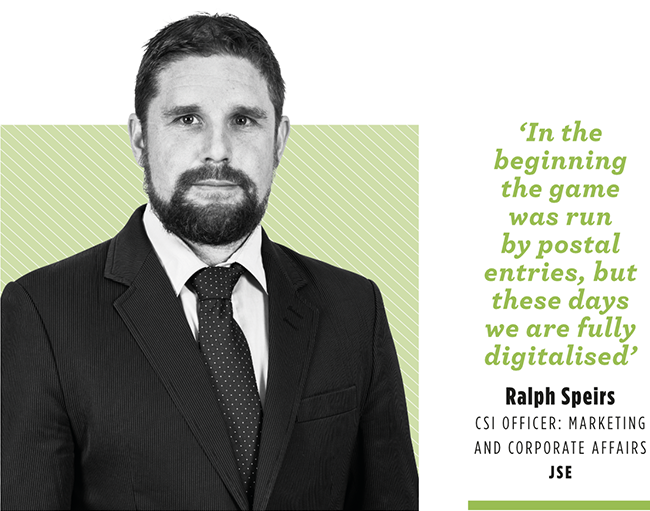1973 was a momentous year in finance. Five decades ago the world was about to enter a period of volatility that became known as the oil shock, or energy crisis, which roiled global markets into 1974 and had long-lasting effects throughout the ’70s. The reasons were complex and had been building for a while, but were sparked by the oil embargo placed on the US by the Organisation of the Petroleum Exporting Countries (OPEC) following the month-long Yom Kippur War in the Middle East, which began in October of that year.
Oil prices quickly quadrupled and, as the Guardian newspaper has put it, more expensive energy ‘pushed up business costs and reduced the disposable incomes of workers. Simultaneously inflationary and deflationary, it resulted in a new word entering the lexicon of economics: stagflation’.
Although much has changed since then, there is a constant – the JSE’s Investment Challenge is still going strong 50 years after its 1973 launch. To commemorate this, the JSE is calling on all alumni of the game to share their experiences, says Ralph Speirs, CSI Officer: Marketing and Corporate Affairs at the exchange. ‘We are asked many times where are those today who participated in the early decades of the JSE Investment Challenge. Did any of them follow a career in finance? If so, how did that work out? What school or institution were they at when they participated? What was a highlight in the markets when they took part? How has the JSE Investment Challenge affected their lives and financial outlook, and so on? We would really like to hear from them so we can tell their stories and their successes in the markets.’

The programme may be turning 50, but the philosophy behind it has remained the same – to aid young people to educate themselves with the fundamentals of investing and realise the importance of financial literacy.
Participants grouped within teams test their share-trading skills through a simulated virtual trading programme that runs between March and September. Each team is given an imaginary R1 million to invest in JSE-listed companies and their performance is tracked and measured with prizes for the top performers. High schools may enter one or more teams, but a team must consist of four members from Grades 8 to 12 with a supervising teacher. University students must form a team of a minimum of two and a maximum of four members who all attend the same institution. Last year, the JSE Investment Challenge attracted 24 000 participants, with representation from throughout the country.
‘Technology has obviously influenced the game hugely over the years,’ says Speirs. ‘In the beginning the game was run by postal entries, but these days we are fully digitalised. So we’ve gone from receiving orders two weeks after the fact to now instantaneously getting them via our electronic platform.’ The markets, too, have changed over the past five decades, with the introduction of more financial products. ‘Fifty years ago it was just about shares,’ says Speirs. ‘Now we have warrants, single-stock futures and exchange-traded products all part of the JSE Investment Challenge competition.’
Although access to financial markets are more streamlined and sophisticated compared to 50 years ago, Speirs says what has never changed is the desire of youngsters to gain financial knowledge to create a brighter future for themselves. ‘As we celebrate the 50th anniversary, the JSE aims to broaden the JSE Investment Challenge’s footprint and entrench increased financial literacy among the youth.’








